The Lavin Agency Speakers Bureau
A speakers bureau that represents the best original thinkers,
writers, and doers for speaking engagements.
A speakers bureau that represents the best original thinkers,
writers, and doers for speaking engagements.
The most important driver of climate change is human action. We have our hands on those levers.
The future is being transformed by climate change faster and more dramatically than we realized. Politics, tech, business—even our sense of human rights—will all be changed by this massive force. But how? To what degree? In his critically-hailed instant New York Times bestseller, The Uninhabitable Earth, DAVID WALLACE-WELLS tells the epic story of our time. His urgent talks ask the key questions for securing our future, and he reminds us that everything is within our control, so long as we resist complacency.
“Potent and evocative … Wallace-Wells has resolved to offer something other than the standard narrative of climate change … He avoids the ‘eerily banal language of climatology’ in favor of lush, rolling prose.”— Jennifer Szalai, The New York Times
The Uninhabitable Earth predicted much of the dizzying, disorienting situation we’re in now—not just the growth of pandemics, but the cascading way that multiple climate-fueled crises (wildfires, air quality hurricanes, infectious disease aided by ecological destruction) undermine our ability to respond effectively to any single one. Thankfully, the underlying solution to all of these challenges is the same: stabilizing the world’s climate. By doing so, we also strike a blow for prosperity, justice, and equality of all kinds, says the book’s author and celebrated climate change speaker David Wallace-Wells. Neither a scientist nor an environmental activist per se, Wallace-Wells is an acclaimed journalist who uses the power of storytelling to move the needle on climate action. His book looks beyond what needs to be done, to consider what the world will actually look like if we don’t move fast. How will humans live together on a degraded planet? Will carbon become a central topic of the 21st century the way human rights were to the 20th? How will the map of global power shift as coastlines are redrawn?
The coronavirus lockdowns have demonstrated just how much about our lives and politics can change on a dime. We’ve seen over the last year how fragile the world is — and how much more resilient it needs to be — but also, simultaneously, how changeable it is. Those hoping to inspire dramatic climate action need not be discouraged, but be inspired. We’re designing the future climate of the planet right now, says Wallace-Wells. This is the timeline we always needed to adopt, but the pandemic has made it unavoidable.
The Uninhabitable Earth was named to the New York Times 100 Notable Books of 2019, GQ’s Best Books of 2019, the New Yorker’s Favorite Books of 2019, and was chosen as one of TIME’s 100 Must-Read Books of 2019. On top of that, Wallace-Wells will serve as a consulting producer on the HBO Max anthology series of the same name, inspired by his book. Oscar- and Emmy-winning writer Adam MacKay (The Big Short, Ant-Man) is helming the project.
Wallace-Wells is currently a columnist and staff writer at The New York Times, where he writes a weekly newsletter on climate change, technology and the future of the planet. He’s also written widely on the Covid-19 pandemic, bringing vital reporting and analysis tothe science and policy coverage. He was previously the Deputy Editor at New York magazine, where he wrote a column on climate change, and where his viral cover story “The Uninhabitable Earth” was met with widespread acclaim, paving the way for his book. Formerly the Deputy Editor of The Paris Review, and a National Fellow at the New America Foundation, he was the co-host of the podcast 2038, which interrogated predictions about the next two decades.
New York Times bestselling author of Here Comes the Sun, Falter, and The End of Nature Founder of 350.org and Third Act
Award-Winning Photographer Member of the TIME100 MacArthur Genius
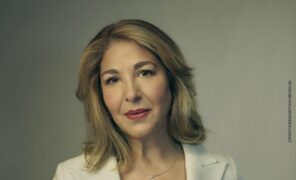
Internationally Bestselling Author of Doppelganger, This Changes Everything, The Shock Doctrine, and No Logo
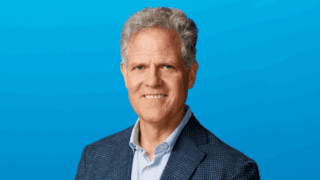
One of America's Foremost Experts on the Declaration of Independence Award-Winning Author, Disunion Among Ourselves

Harvard Economist MacArthur Genius Studying Economic Opportunity Director of Opportunity Insights
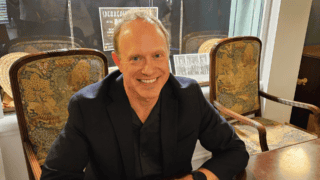
Author of Morningside and THE AMERICANO

Author, How to Make Your Brain Your Best Friend Neuroscientist with 2 Million Followers Across Social Media Platforms
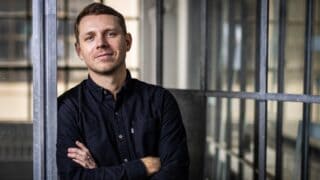
Founder and Director, MIT Self-Assembly Lab Associate Professor of Design Research, MIT
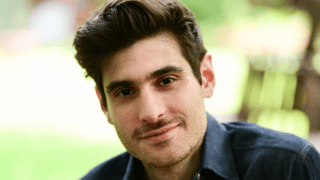
Author, A Brief History of Intelligence AI Entrepreneur and Founder of Bluecore Forbes 30 Under 30 Honoree

#1 New York Times Bestselling Author of Grit and Situated | Pioneering Researcher on Grit, Perseverance, and the Science of Success

Nobel Prize Winner | 3rd Most Cited Economist in the World | Bestselling Co-Author of Why Nations Fail and Power and Progress

Harvard Business School Behavioral Science Professor | "40 Under 40 MBA Professor" | Author of TALK: The Science of Conversation and the Art of Being Ourselves

#1 New York Times Bestselling Co-Author of Abundance | Host of thePlain English Podcast | Founder of the Substack Derek Thompson

#1 New York Times Bestselling Author of How the Word Is Passed and Above Ground | The Atlantic Staff Writer
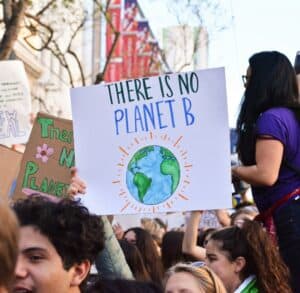
The impending climate crisis isn’t impending—it’s already here. There’s no going back, and all we can do is damage control to try to slow the rising temperatures: it’s a depressing thought, but true. How can we deal with a problem that possesses the speed, scope and severity of a disaster straight out of Greek mythology or Genesis? What can the generation who inherited this damaged planet do to keep it alive? Navigating the future and mitigating the consequences of the actions of irresponsible ancestors will be a challenge—but it’s something we can all face together.
In this talk, David Wallace-Wells draws on the findings in his book, The Uninhabitable Earth, and explores the near-future we face in the wake of the climate crisis. Even though there will be difficult times ahead, there is still time to mitigate the effects of years of abusing our planet and, most importantly—there is still hope for a livable future for all. This is our story: everything we do now, or want to do, is affected by it, from the jobs we can have, where we can live, what we can eat and the pop culture we consume. Wallace-Wells knows that we’re not just watching this story unfold, we’re all the protagonists. The future is ours to write: the past might have provided the paper, but we hold the pen.